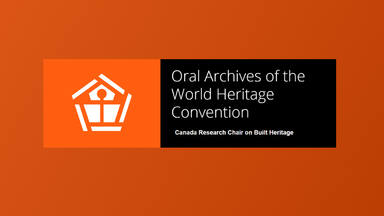Interview
Vinod B. Mathur
World Heritage Convention
Vinod B. Mathur obtained his doctorate in wildlife ecology from the University of Oxford, United Kingdom in 1991.
After joining the Indian Forest Service in 1983, he served for 33 years at the prestigious Wildlife Institute of India, a globally acclaimed scientific institution of the Ministry of Environment, Forest & Climate Change, including as Dean and subsequently, as Director. He then chaired the National Biodiversity Authority of India from 2019 to 2022. Vinod Mathur has served as an expert in many national and international organizations involved with biodiversity and ecosystem protection. He has been the regional Vice-Chair of the IUCN-World Commission on Protected Areas for South Asia from 2011 to 2021, and a member of the International Association of Impact Assessment since 1999.
Dr. Mathur has been officially involved in World Heritage from 2005 to 2019 as part of the Indian delegation to World Heritage Committee. He contributed to several nomination files including the Western Ghats as India's first serial nomination and the Kanchenjunga National Park as India's first mixed site. He played a key role in the establishment of the UNESCO Category 2 Center on World Natural Heritage Management and Training for the Asia and the Pacific Region at the Wildlife Institute of India and served as its Founder Director from 2014 to 2019.
Interview with
Vinod B. Mathur
11 December 2023
The following audio excerpts are from a virtual interview with Vinod Mathur conducted by Christina Cameron and Mechtild Rössler on 11 December 2023. In his interview, Vinod Mathur discusses his experience as a Committee member, his activities as an IUCN evaluator and his many contributions to wildlife and ecosystem management in his own country and internationally.
- 1. World Heritage Convention
- 1a. Involvement of Vinod Mathur in World Heritage
- 1b. Cairns reforms
- 1c. Successes and failures of the Convention
- 2. World Heritage Committee
- 3. Category 2 centres
- 4. Engagement of States Parties: local and international levels
- 5. Role of civil society
- 6. Intentional destruction of World Heritage sites
Oral Archives of the
World Heritage Convention
Under the leadership of the Canada Research Chair on Built Heritage at the University of Montreal, an international team of researchers conducts interviews with pioneers of World Heritage to capture memories of important moments in the history of UNESCO Convention.
Launched in 2006, this initiative is part of the UNESCO History project that celebrated the 60th anniversary of the creation of UNESCO. The Oral Archives project records the precious witness of people closely associated with the creation and implementation of the Convention. Their recollections and views have greatly enriched the book by Christina Cameron and Mechtild Rössler, Many Voices, One Vision: The Early Years of the World Heritage Convention (Ashgate/Routledge, 2013).
